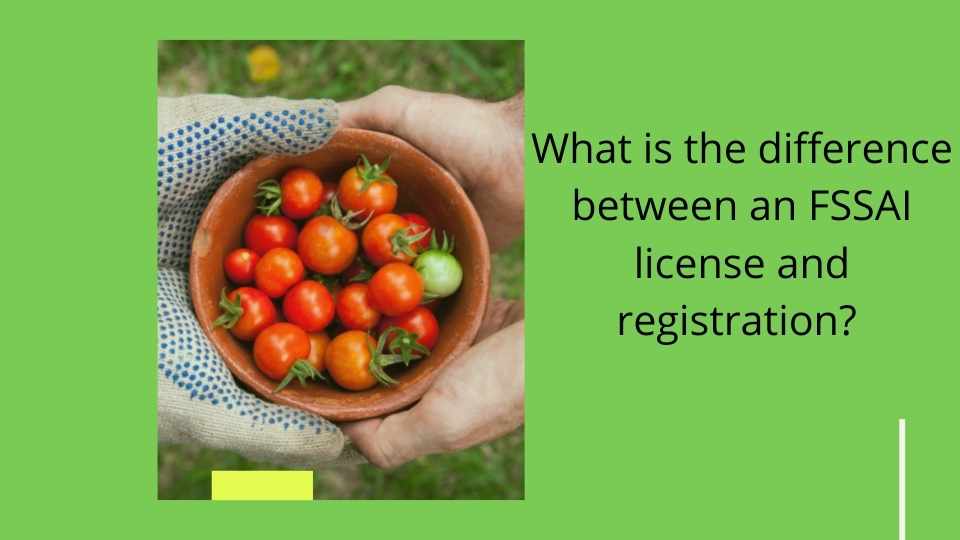What is the difference between an FSSAI license and registration?

The Food Safety and Standards Authority of India is abbreviated as FSSAI. The FSSAI license is a permit that allows a business to sell food commercially. According to the FSSAI official website, any food business operator who manufactures, processes, stores, distributes, or sells food must register for and maintain an FSSAI Registration. As a result, the FSSAI’s scope extends beyond restaurants. Aside from being a legal document, an FSSAI License is a symbol of high food quality. You are assigned a 14-digit registration number when you register with the FSSAI. This license will, in turn, be determined by the size of operations.
Suggested read- food license
FSSAI License is issued by the issuing authority.
The Food Safety and Standards Authority of India issues the FSSAI License. The FSSAI is a self-governing institution established by the Ministry of Health and Family Welfare of the Government of India. It was founded under the Food Safety and Standards Act of 2006 (FSSA Act of 2016), which is a consolidated statute in India governing food safety and regulation. The FSSAI is primarily responsible for the preservation and promotion of public health through its key tasks of food safety regulation and oversight.
What documents are required when applying for an FSSAI License?
The basic FSSAI registration is fairly simple. These are the paperwork required for it.
Form B – duly completed and signed
The FSSAI Form B contains roughly 15 fields that seek information regarding your food business.
The following are the documents required for the basic FSSAI License:
- Photographic Identification of the Food Business Operator (Restaurant Owner).
- Evidence of complete possession of the premises (eg. Rental Agreement ).
- A Certificate of Incorporation or a Partnership Deed.
- List of food goods to be handled with (both inputs and the end menu).
The following are the documents required for the FSSAI State License:
- You would need to show a government ID (Voter ID card, Passport, Driver’s License, Aadhar card).
- You must have the Form-B completed and signed (in duplicate) by the Proprietor, Partner, or Authorized Signatory.
- You will need to have a blueprint or a layout design of the restaurant with the exact specs (indicating the dimensions in meters) and the operation-wise space allocation, which would include all of your restaurant’s kitchens or manufacturing areas.
- All of your restaurant’s significant people, including a list of Directors or Partners/Executive Members of Society/Trust with complete addresses and contact information. This is a requirement for any restaurant.
- You would require a government-issued identity and address evidence for Proprietor/Partner/Director (s).
- You would need to share a list of food categories that will be available to customers.
- An authority letter that includes crucial facts such as the responsible person’s name and address, as well as the restaurant’s nomination. Aside from that, you should mention other essential people and the authorities they have so that the point of contact for any inspections, sample collection, and so on can be quickly accessed whenever necessary.
- An updated water analysis report for use as a major element in the food preparation process. This should only be performed by a reputable public health laboratory.
- Legal proof of possession of the premises. This could be a purchase agreement or a lease arrangement.
Also read – food license online
- If milk is utilized as an ingredient/raw material, you must show the source of milk or a milk procurement strategy, including the location of milk collection centers (in the case of Milk and Milk Products processing).
- If your restaurant is not vegetarian, you must also list the origins of raw materials for meat and meat processing companies.
- In addition to the water analysis point described in point 9, you would need to submit a pesticide residues report for water. This is in the case of units producing packaged drinking water, mineral water, and/or carbonated water from a reputable public health laboratory.
- You may also be required to present the business plan, so keep that on hand.
- A NOC certificate from the municipality or local body would be required.


